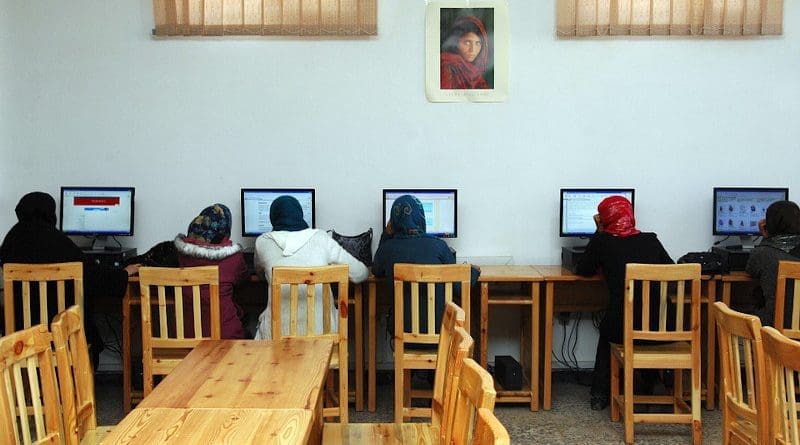Women And The Taliban Regime – OpEd
It is hard to be a woman in a land that has been at war for years!
After years of war and armed conflict, Afghanistan started the processes of institutional change with introducing the 2004 Afghanistan Constitution. With the assistance of international community, Afghans began state building, democratic governance, public service delivery, and reconstruction.
Soon after, Afghanistan accelerated supporting business, small and medium enterprises, international trade. As such, with financial support from the international community, the Afghanistan government was able to build water dams that were very useful in advancing the agriculture sector. During the past 20 years, Afghanistan witnessed remarkable achievements in sports and Olympics. Referring to the World Bank data, the country’s GDP dramatically increased from USD 4billions in 2002 to USD 19 billions in 2018.
Similarly, in 2002, 90% of the population did not have access to a telephone and people had to go to cities and even another country to make phone calls, but after investing on Afghan Telecommunication Services, 90% of the Afghan population has access to a telephone. Also, between 1996 and 2006, the share of our export in the economy was not something notable. However, the Afghanistan government export shares to the GDP raised to USD 1 billion. The Lajaward Road opens the way for Afghanistan to transport its products by land to Europe via Turkmenistan, Georgia, Azerbaijan, and Turkey. Afghanistan has become a regional economic and trade center connecting the markets and businesses of South Asian countries with Central Asia. Additionally, the Women’s Chamber of Commerce and Industry was created by women investors and more than 5,000 companies and economic activities were created and led by women.
Before 2001, Afghan women were not allowed to study and to work. After the interim government introduced by the Bonn Agreement, Afghan girls and women started going to school and utilized the opportunity to work in governmental and non-governmental organizations. Until 2001, there were about 1 million students in the entire country, but now the number of students is more than 7 million, of which 3 million are girls. Without contrast, before 2001, women were not allowed to work, and even female teachers lost their jobs after the government closed all schools for girls. Currently, however, more than 71,000 female teachers teach in the education sector. Until 2001, there were about 3,000 schools across the country, but now there are more than 16,000 schools across the country, of which 3,000 are for girls.
Likewise, education and higher education have grown significantly in the last two decades, with 38 governmental universities established. In 2019, approximately 200,000 male and female students were studying, and hundreds of thousands of students received their bachelor’s degrees.
Afghanistan’s achievements are unprecedented in the country’s history and are not at all comparable to the last two decades. All these remarkable achievements were ruined and Kabul fell back to 20 years ago on August 15, 2021. The current armed conflict and regime-change adversely impacted the lives of million Afghans.
Women again lost their basic freedoms and have to remain in home without any hope, thinking about their unknown future. The very basic rights and liberties that Afghan women are denied includes the freedom of expression, the freedom of thought, the right to political participation, the right to education, the right to work and most importantly the right to life.
Afghanistan lost its cadres and youth as everyone preferred to abandon his/her homeland. All institutions for good governance have been destroyed. The Afghan people are fed up and are tired of war and armed conflict. The Afghan women expect and deserve to have a meaningful participation in the next regime that is going to be introduced by the Taliban. No government can survive without the presence and support of women!
Let’s talk, know our rights, respect national values and free Afghanistan.
*Maryam Sediqi is from Afghanistan and a civil activist.


Thank you very much sister to explain the Afghan women concerned and voice to the world.
Proud of you
I really appreciate u♥️
You wrote great dear maryami
Hope you great life 💙